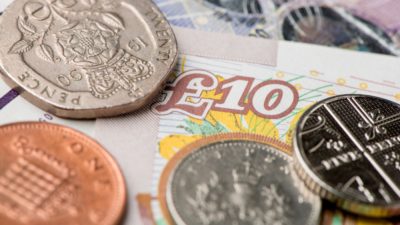When US consumer goods group Kraft Heinz Co made an opportunistic takeover proposal for rival Unilever (LSE: ULVR) in February, management rejected the bid immediately. But its board was left with questions to answer.
With a market cap of £112bn, Unilever is 25% larger than £89bn Kraft Heinz. How could the smaller firm be so confident of generating a return on its proposed $143bn investment?
The answer is probably that Kraft Heinz is run on private equity lines, with ruthless cost-cutting and high levels of debt. Applying this management approach to Unilever’s more conservative business model would almost certainly have souped up returns for a few years, generating a handsome payoff for Kraft shareholders.
February’s events left Paul Polman, Unilever’s chief executive, under increased pressure to improve profitability without sacrificing the group’s focus on sustainable long-term growth.
To underline the market’s expectations, Unilever’s share price has remained close to the Kraft bid level of £40 per share since February. Change is already priced into the stock. Can Unilever deliver?
What’s going to change?
Unilever says that it remains committed to its “proven long-term model … of sustainable value creation”.
However, Mr Polman says the group is now in a position to “go faster and further”. His goal is to increase the group’s underlying operating margin from about 15% to 20% by 2020.
The first big change is that the group’s Food and Refreshment divisions will be combined into one unit. This will include brands such as Hellmann’s, Knorr, Ben & Jerry’s and Magnum. Unilever expects to make cost savings of €2bn in this division over the next three years. The firm believes that this will result in the Food and Refreshment operating margin rising from 16.4% to 20% by 2020.
Unilever’s spreads business, which owns brands such as Flora, will be sold. According to press reports, analysts have valued this at about €6bn-7bn.
Dividend up 12%
In parallel with these organisational changes, Unilever is taking steps to improve shareholder returns.
The dividend will be increased by 12% this year. Unilever will also spend €5bn on share buybacks. These have the effect of increasing earnings per share, thus justifying a higher share price.
Is this good news?
In my view, these plans are effectively bringing forwards some of the gains the group hopes to deliver by 2020. Mr Polman doesn’t want Unilever’s share price to fall back to the low £30s, where it was before the Kraft bid.
To help fund the increase in shareholder returns, net debt will rise to around two times the group’s earnings before interest, tax, depreciation and amortisation (EBITDA). I estimate that this will involve an increase in net debt of about €3.3bn, from €12.7bn to around €16bn.
Buy, hold or sell?
As a long-term shareholder, I’m a little disappointed by plans to increase borrowing. But overall, I’m cautiously optimistic. I don’t think the changes announced today should threaten the investment appeal of Unilever’s high-quality business or the safety of its dividend.
But with the shares now trading on a forecast P/E of 22 and a prospective yield of 3.1%, I think there’s better value elsewhere. I’ll continue to hold, but I will wait for a market sell-off before buying any more.






